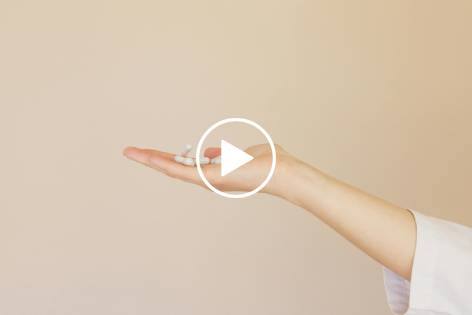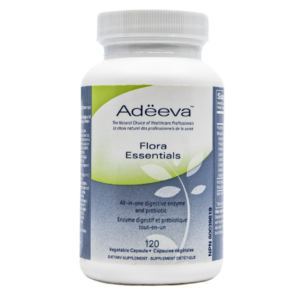
Probiotics Supplement Improves Early-Stage Cirrhosis
Source: Frontiers of Medicine (Hepatobiliary Diseases) 2024
Lifestyle Medicine Update (May 14, 2024)
A large systematic review published in the journal Frontiers of Medicine (Hepatobiliary Disease) in March of 2024 has confirmed that the use of probiotic supplements, containing lactobacillus, bifidobacterium and streptococcus bacteria, improve liver function in people with advanced non-alcoholic fatty liver disease (NASH) and in patients with alcohol-induced liver disease. This is important because currently one the top 10 leading causes of death globally is liver cirrhosis, often caused by too much fat residing in the liver due to a poor diet, obesity, or lack of exercise, and/or the ingestion of too much alcohol. Viral infections can also lead to liver failure (i.e., viral hepatitis). Fatty liver disease (non-alcohol steatohepatitis) and alcoholic-induced liver disease can quickly progress to liver fibrosis and then to life-threatening cirrhosis. This study looked at patients who already had varying degrees of liver cirrhosis from NASH or alcohol-induced liver disease and it showed that even patients in the early stages of cirrhosis (a very serious matter) can reverse their condition to a significant degree and enjoy improved quality of life by simply taking a probiotic supplement daily. This systematic review analysed data from 30 randomized controlled trials involving over 2,000 patients with cirrhosis from 14 different countries, comparing the effects of probiotic treatment to no treatment or other standard forms of treatment for cirrhosis.
The results showed that probiotic supplementation improved End-Stage Liver Disease Scores (MELD Score) and improved quality of life scores, and that the use of probiotics was safe and tolerable. Probiotics appear to support liver function by reducing the secretion of inflammatory chemicals (cytokines – TNF-alpha and IL-6) that promote progression of liver fibrosis and cirrhosis and they reduce the synthesis and absorption from the gut of bacterial endotoxins, which are known to promote liver fibrosis and inflammation.
To some degree, the friendly bacteria (lactobacillus, bifidobacterium streptococcus species) crowd out and eliminate the unfriendly or harmful gut bacteria the generally produce dangerous endotoxins. So, if probiotic supplementation can help to reverse a condition as serious as cirrhosis, it is also very likely to be beneficial in the prevention of liver inflammation in the first place, even in people who don’t have cirrhosis. Given that 20% of Canadians already have Non-Alcoholic Fatty Liver Disease (often seen in people who are overweight or obese, particularly with belly fat and/or who overeat fatty or sugary foods), the knowledge that a probiotic supplement can help to reverse this condition to some degree is of great importance. https://www.liver.ca/patients-caregivers/liver-diseases/fatty-liver-disease/#:~:text=As%20the%20name%20implies%2C%20the,of%20their%20body%20(waist).
In the United States deaths from liver cancer and liver cirrhosis increased 65% from 1999-2016, and much of this is attributed to excess alcohol consumption, and an increasing number of cases of alcohol-induced liver failure is becoming common in people in their 20’s, and 30’s. https://www.cbc.ca/news/health/alcohol-related-liver-disease-skyrocket-among-young-adults-1.4753422
The bottom line is that the ingestion of too much animal fat, fried foods, as well sugary foods, combined with too little physical activity and weight gain have made non-alcoholic fatty liver disease a common health problem in our society that carries grave consequences. In a separate category is excess consumption of alcohol, which alone can cause liver fibrosis, cirrhosis, and liver cancer (hepatocellular carcinoma). So, ask your doctor to order a couple of basic liver function tests (ALT and AST) on your next visit to see if you are showing any indication of liver damage. Get the bad fats out of your diet, eat the amount of carbohydrates that you plan to burn through physical activity and exercise on any given day, work to achieve or maintain an ideal weight, and eliminate or use alcohol very judiciously. These basic steps can help to reduce the risk of fatty liver problems and reverse it.
Taking a probiotic supplement each day may further help to protect your liver and if you have been diagnosed with a fatty liver problem from any cause, ask your doctor if the research I am citing today regarding a probiotic supplement can be used to help better manage your condition. I often encourage patients who are taking a probiotic supplement to also take a supplement that contains prebiotics (FOS and Inulin), as they provide fuel for the probiotic bacteria to help them grow and proliferate in the gut.
Thanks for watching and I’ll see you next time.
References:
Yang X et al. Probiotics are beneficial for liver cirrhosis: a systematic review and meta-analysis of randomized control trials. Frontiers in Medicine (Hepatobiliary Diseases). 2024,11. https://www.frontiersin.org/articles/10.3389/fmed.2024.1379333/full
Crist Carolyn. Probiotics emerge as a promising intervention in Cirrhosis. GI & Hepatology News. March 3, 2024. https://www.mdedge.com/gihepnews/article/268986/liver-disease/probiotics-emerge-promising-intervention-cirrhosis?ecd=WNL_EVE_240507_mdedge
Eat Smart, Live Well, Look Great,
Dr. Meschino
Recommended Supplements

Dr. James Meschino
ABOUT THE AUTHOR
Dr. James Meschino, DC, MS, ROHP, is an educator, author, and researcher having lectured to thousands of healthcare professionals across North America. He holds a Master’s Degree in Science with specialties in human nutrition and biology and is recognized as an expert in the field of nutrition, anti-aging, fitness, and wellness as well as the author of numerous books.

